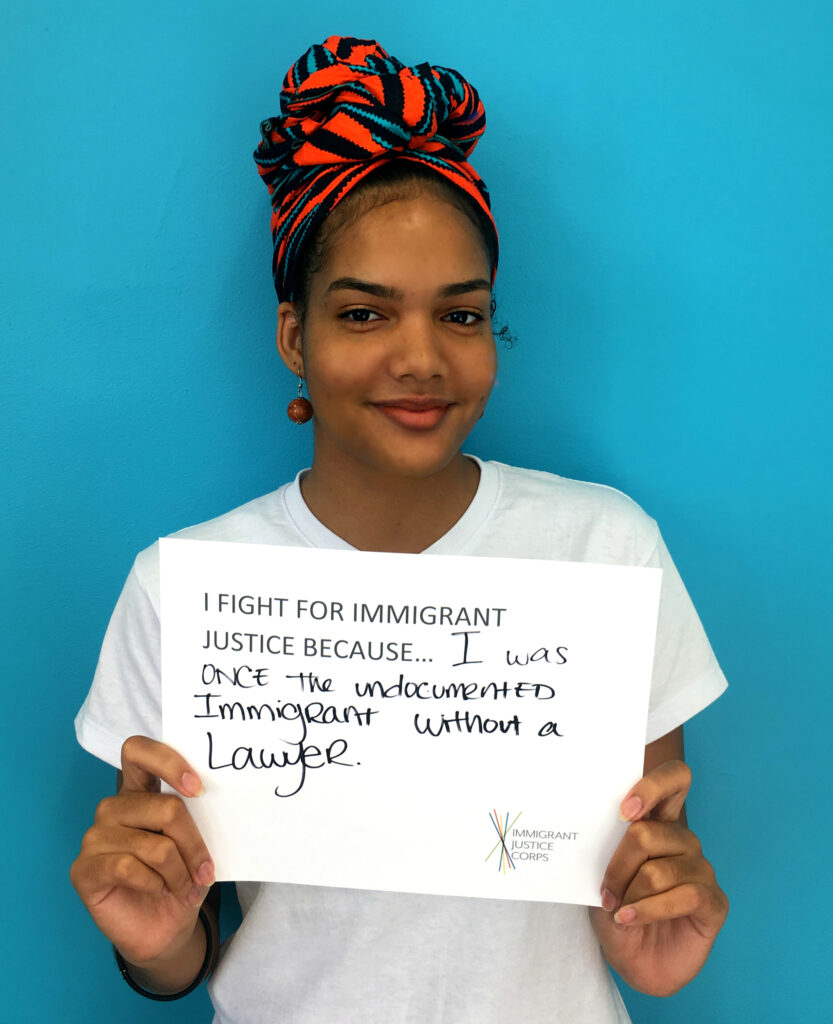IJC Fellow keeps a family together
Meet Mana Aliabadi, a Second-Year Justice Fellow assisting Afghan asylum-seekers and other evacuees at the Nationalities Services Center in Philadelphia, PA. Below, Mana reflects on her experience providing counsel to a family in a uniquely desperate situation.
—
One of the best things about being an IJC Justice Fellow is the freedom and flexibility that the funding provides to my host organization to take on cases they would otherwise be unable to take on.
This freedom was revealed to me when I had a legal consultation with a family who was in a uniquely desperate situation, with seemingly nobody else to take on their case before their upcoming filing deadline.
The client, Jessica, and her husband, Oscar, had been visiting the United States from their home country for a few weeks when Jessica was admitted to the hospital. Upon examination, doctors told Jessica that she was having pregnancy-related complications and that she would need to give birth earlier than expected. As a result, Jessica and her husband could not leave the United States as they had originally planned, and Jessica was forced to give birth in New York. Due to a series of severe and unforeseen health complications, Jessica gave birth to premature, conjoined twin daughters, who remain conjoined to this day. Given the serious nature of their medical needs, the daughters were transferred to the Children’s Hospital of Philadelphia.
When Jessica and Oscar first got in contact with me, they were just days away from the expiration of their tourist visas. Recognizing that I was perhaps their last resort in terms of legal assistance, I quickly gathered all the evidence necessary to submit an application to extend their tourist visa.
After some time, the government responded with a Request for Evidence. Thus, while we were hoping for a positive outcome given the sympathetic nature of the case, the government was demanding proof that Jessica and Oscar would be able to provide for themselves for the duration of their stay in the country. Providing this proof was not an easy feat and required me to coordinate and gather information from various care providers — including social workers, housing providers and their babies’ medical team.
Ultimately, I compiled about 100 pages of additional evidence, including but not limited to a non-profit organization’s tax returns, updated affidavits and letters of support. With assistance from our team, I prepared a legal memorandum in support of the application. I finally submitted this packet of updated evidence on their behalf. I wasn’t quite sure what to expect. Nobody in my office had done this sort of application.
Then, after some time, I received the delightful news that the the government had granted my clients’ application. It was my first concrete “win,” and I was so happy to hear the news. Jessica and Oscar were also ecstatic, as this meant they wouldn’t have to return to their home country while their baby daughters remained hospitalized here in the United States.
I also felt accomplished because, thanks to IJC, I was able to take on a case that nobody else on my team would’ve been able to undertake. And in doing so, I was able to obtain material results for clients, who were in a particularly precarious situation.
Moving forward, my work with Jessica and Oscar is not yet complete. The application will need to be renewed and we are working on putting together some longer-term options for the family, so that their daughters can continue to receive the life-saving care that they need. Throughout this process, I have had the pleasure to watch a seemingly hopeless situation transform into a more hopeful one, while also honing my unique skills as an early-career immigration attorney. I am thankful for this fellowship as it continues to enable me to grow in this field while serving the needs of people in the most vulnerable situations.
Without competent counsel like Mana, thousands are deported even though they have viable claims to immigration benefits. But with your support, we’re building the capacity of legal service providers and community-based organizations to pave the way towards universal representation for all immigrants. Consider making a donation to IJC today.
